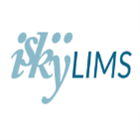Difference between revisions of "ISkyLIMS"
Shawndouglas (talk | contribs) m (Citation error) |
Shawndouglas (talk | contribs) m (Text replacement - "\[\[Illumina, Inc.(.*)" to "[[Vendor:Illumina, Inc.$1") |
||
| Line 25: | Line 25: | ||
==Product history== | ==Product history== | ||
iSkyLIMS was conceived as part of the masters project of Luis Chapado at the Autonomous University of Madrid in 2017 and 2018.<ref name="ChapadoCreacion18">{{cite web |url=https://repositorio.uam.es/bitstream/handle/10486/682665/chapado_chorro_luisantonio_tfm.pdf?sequence=1&isAllowed=y |format=PDF |title=Creación de un LIMS para NextSeq |author=Chapado Chorro, L.A. |publisher=Universidad Autonomo de Madrid |date=February 2018 |accessdate=15 February 2019}}</ref> The core reason for developing the LIMS was, according to Chapado, the fact that no open-source options existed that could integrate readily with the NextSeq series of [[Illumina, Inc.|Illumina]] sequencers, and the cost of adapting existing open-source options or buying proprietary options to meet the needs of the Carlos III Health Institute (ISCIII) was prohibitive.<ref name="ChapadoCreacion18" /> Shortly after Chapado's masters thesis was released, the software was presented at the European Congress of Clinical Microbiology and Infectious Diseases (ECCMID) in April 2018<ref name="MonzoniSLPDF" />, and a beta 1.1.1 version of iSkyLIMS appeared on GitHub, in May 2018.<ref name="iSLStart1" /> As of December 2018, commits were still being made to the project.<ref name="iSL-GHHome" /> | iSkyLIMS was conceived as part of the masters project of Luis Chapado at the Autonomous University of Madrid in 2017 and 2018.<ref name="ChapadoCreacion18">{{cite web |url=https://repositorio.uam.es/bitstream/handle/10486/682665/chapado_chorro_luisantonio_tfm.pdf?sequence=1&isAllowed=y |format=PDF |title=Creación de un LIMS para NextSeq |author=Chapado Chorro, L.A. |publisher=Universidad Autonomo de Madrid |date=February 2018 |accessdate=15 February 2019}}</ref> The core reason for developing the LIMS was, according to Chapado, the fact that no open-source options existed that could integrate readily with the NextSeq series of [[Vendor:Illumina, Inc.|Illumina]] sequencers, and the cost of adapting existing open-source options or buying proprietary options to meet the needs of the Carlos III Health Institute (ISCIII) was prohibitive.<ref name="ChapadoCreacion18" /> Shortly after Chapado's masters thesis was released, the software was presented at the European Congress of Clinical Microbiology and Infectious Diseases (ECCMID) in April 2018<ref name="MonzoniSLPDF" />, and a beta 1.1.1 version of iSkyLIMS appeared on GitHub, in May 2018.<ref name="iSLStart1" /> As of December 2018, commits were still being made to the project.<ref name="iSL-GHHome" /> | ||
==Features== | ==Features== | ||
Latest revision as of 16:14, 29 March 2024
 | |
| Developer(s) | Luis Chapado, Sara Monson, et al. |
|---|---|
| Initial release | May 10, 2018 (v1.1.1)[1] |
| Stable release |
3.0.1 (January 17, 2024) [±] |
| Preview release | None [±] |
| Written in | Python and Django Framework[2] |
| Operating system | Linux |
| Type | Laboratory informatics software |
| License(s) | GNU General Public License v3.0 |
| Website | https://github.com/BU-ISCIII/iSkyLIMS |
iSkyLIMS is a free, open-source laboratory information management system (LIMS) "for next generation sequencing [NGS] sample management, statistics and reports, and bioinformatics analysis service management."[3] The software attempts to address managing the workflow of NGS laboratories, including library preparation and data production, while reducing errors and facilitating quality control.[3]
Product history
iSkyLIMS was conceived as part of the masters project of Luis Chapado at the Autonomous University of Madrid in 2017 and 2018.[4] The core reason for developing the LIMS was, according to Chapado, the fact that no open-source options existed that could integrate readily with the NextSeq series of Illumina sequencers, and the cost of adapting existing open-source options or buying proprietary options to meet the needs of the Carlos III Health Institute (ISCIII) was prohibitive.[4] Shortly after Chapado's masters thesis was released, the software was presented at the European Congress of Clinical Microbiology and Infectious Diseases (ECCMID) in April 2018[2], and a beta 1.1.1 version of iSkyLIMS appeared on GitHub, in May 2018.[1] As of December 2018, commits were still being made to the project.[3]
Features
Features of iSkyLIMS include[5]:
- genomic sample management
- genomic sample identification and tracking
- genomic data queries and analysis
- quality management
- reporting
- wet- and dry-lab management
Hardware/software requirements
The original developers have experience installing the software on CentOS 6.9, though it presumably can be installed on other Linux pacakges. Apache 2.2, Django 2.0, and Python 3.6.1 are all used by iSkyLIMS.
Videos, screenshots, and other media
- iSkyLims wiki, with installation and usage instructions
Entities using iSkyLIMS
Carlos III Health Institute
Further reading
- Chapado, L.; Monzon, S.; Sola-Campoy, A. et al. (22 April 2018). "iSkyLIMS, a friendly environment to facilitate the incorporation of massive sequencing to a genomics core facility" (PDF). European Society of Clinical Microbiology and Infectious Diseases. https://www.escmid.org/escmid_publications/escmid_elibrary/material/?mid=64095.
- Chapado Chorro, L.A. (February 2018). "Creación de un LIMS para NextSeq" (PDF). Universidad Autonomo de Madrid. https://repositorio.uam.es/bitstream/handle/10486/682665/chapado_chorro_luisantonio_tfm.pdf?sequence=1&isAllowed=y.
(in Spanish)
External links
References
- ↑ 1.0 1.1 Monzon, S. (10 May 2018). "iSkyLIMS first beta version!!". GitHub, Inc.. https://github.com/BU-ISCIII/iSkyLIMS/releases/tag/v.1.1.1. Retrieved 15 February 2019.
- ↑ 2.0 2.1 Chapado, L.; Monzon, S.; Sola-Campoy, A. et al. (22 April 2018). "iSkyLIMS, a friendly environment to facilitate the incorporation of massive sequencing to a genomics core facility" (PDF). European Society of Clinical Microbiology and Infectious Diseases. https://www.escmid.org/escmid_publications/escmid_elibrary/material/?mid=64095. Retrieved 15 February 2019.
- ↑ 3.0 3.1 3.2 "BU-ISCIII/iSkyLIMS". GitHub. https://github.com/BU-ISCIII/iSkyLIMS. Retrieved 15 February 2019.
- ↑ 4.0 4.1 Chapado Chorro, L.A. (February 2018). "Creación de un LIMS para NextSeq" (PDF). Universidad Autonomo de Madrid. https://repositorio.uam.es/bitstream/handle/10486/682665/chapado_chorro_luisantonio_tfm.pdf?sequence=1&isAllowed=y. Retrieved 15 February 2019.
- ↑ "Usage: Introduction". iSkyLIMS Wiki. GitHub, Inc. 26 July 2018. https://github.com/BU-ISCIII/iSkyLIMS/wiki/Introduction. Retrieved 15 February 2019.









